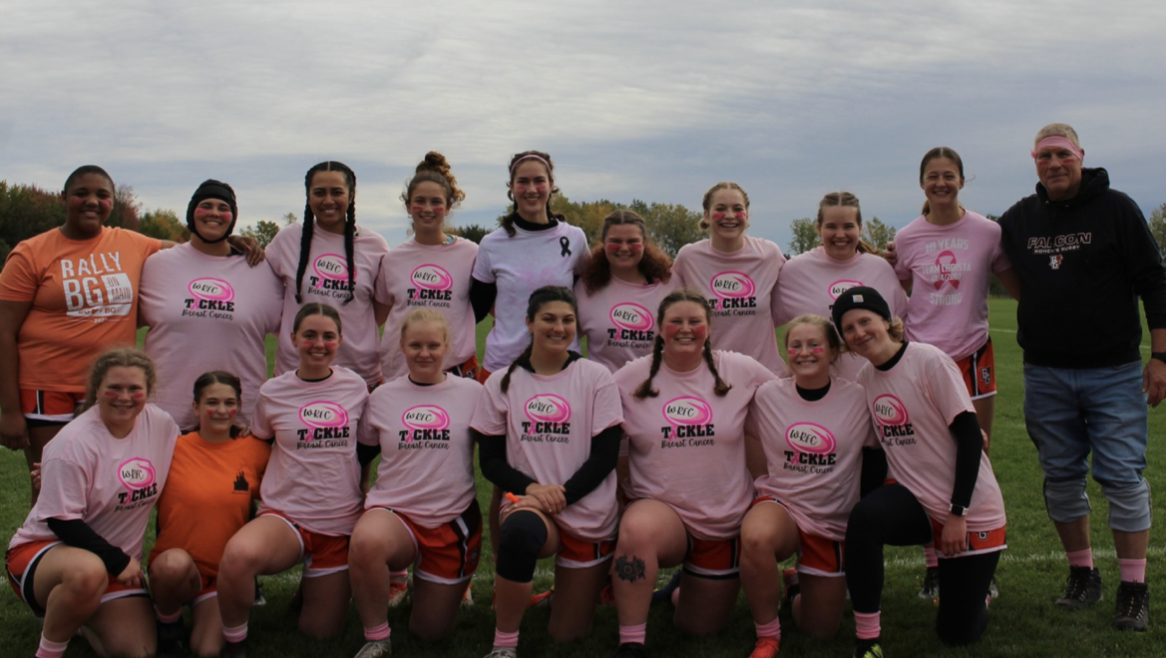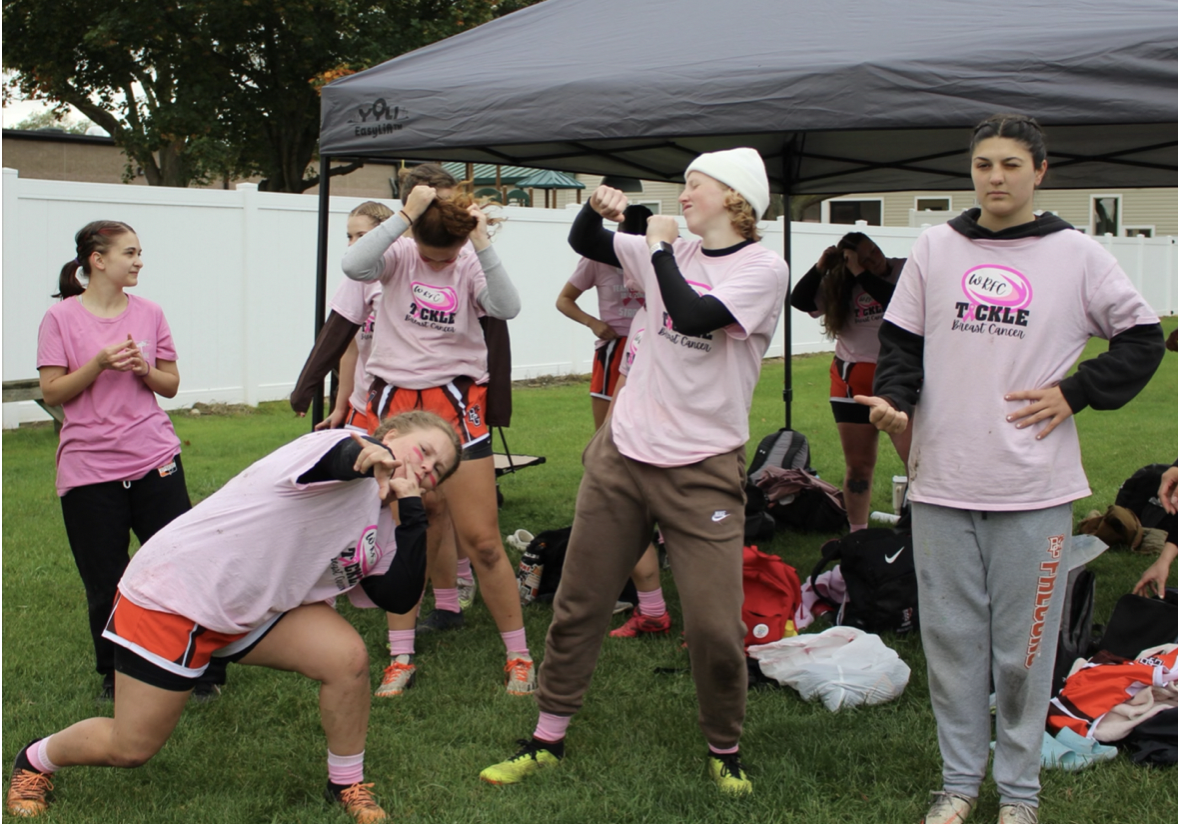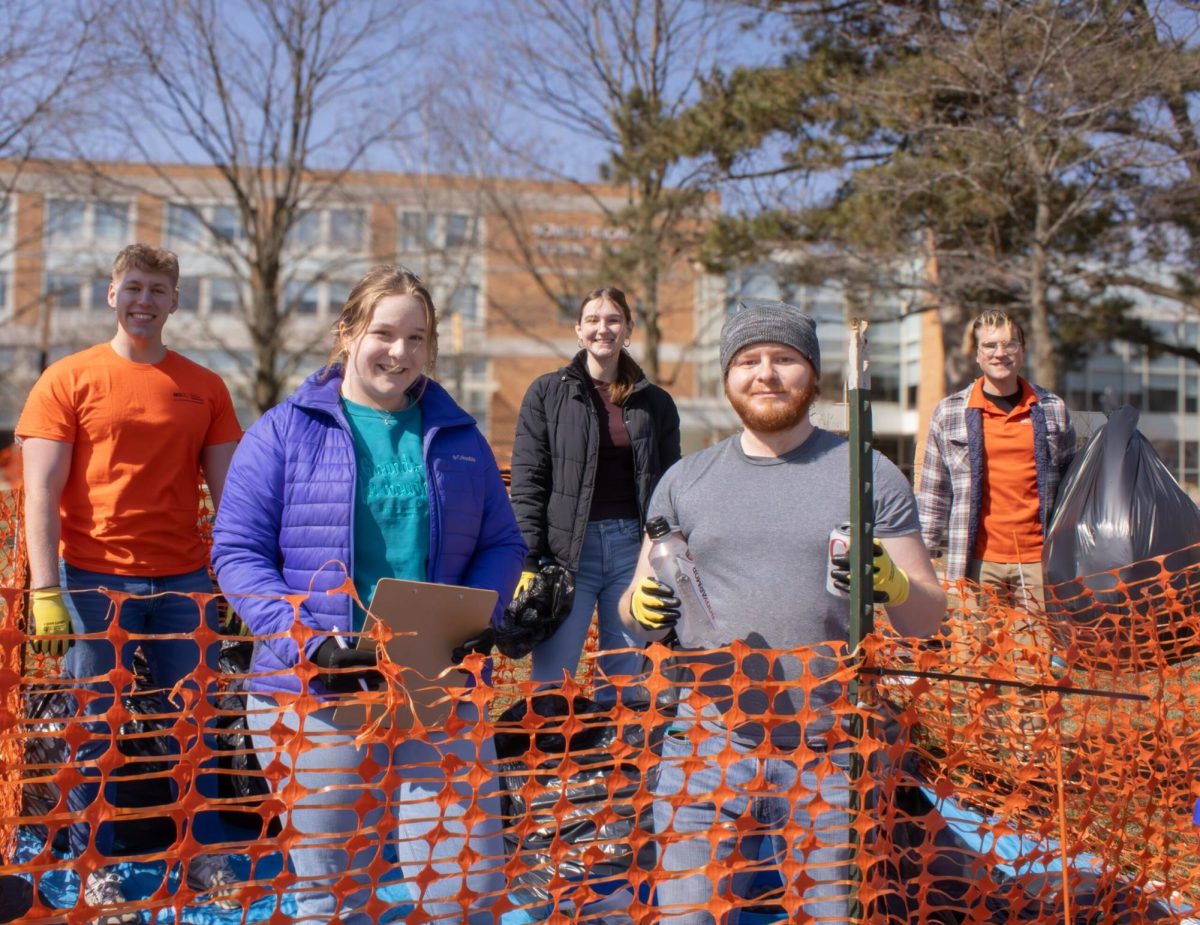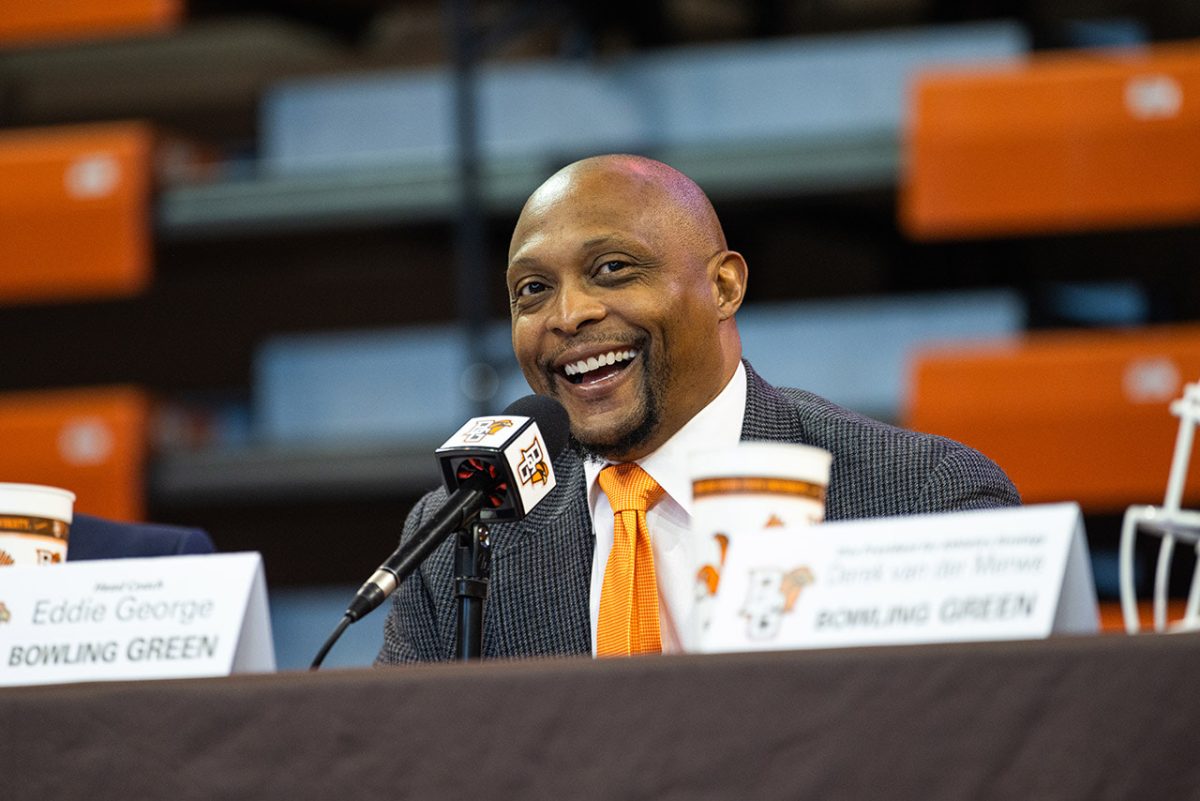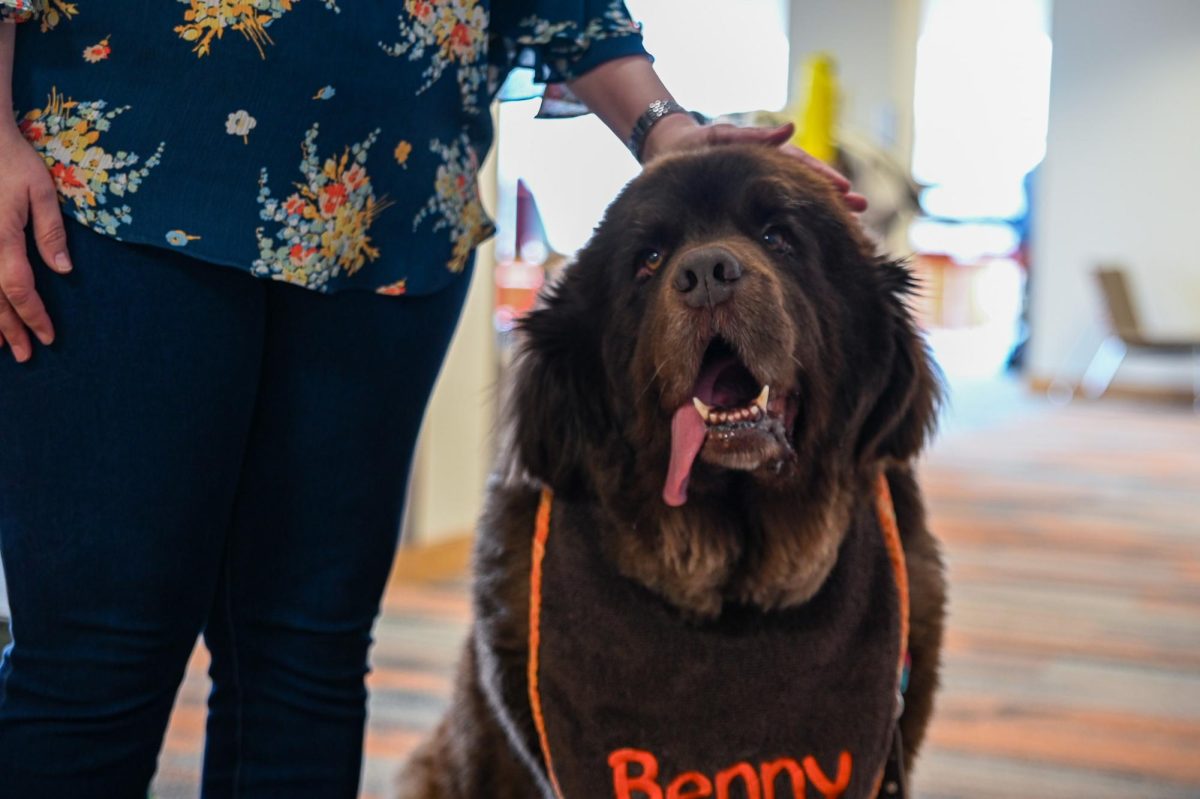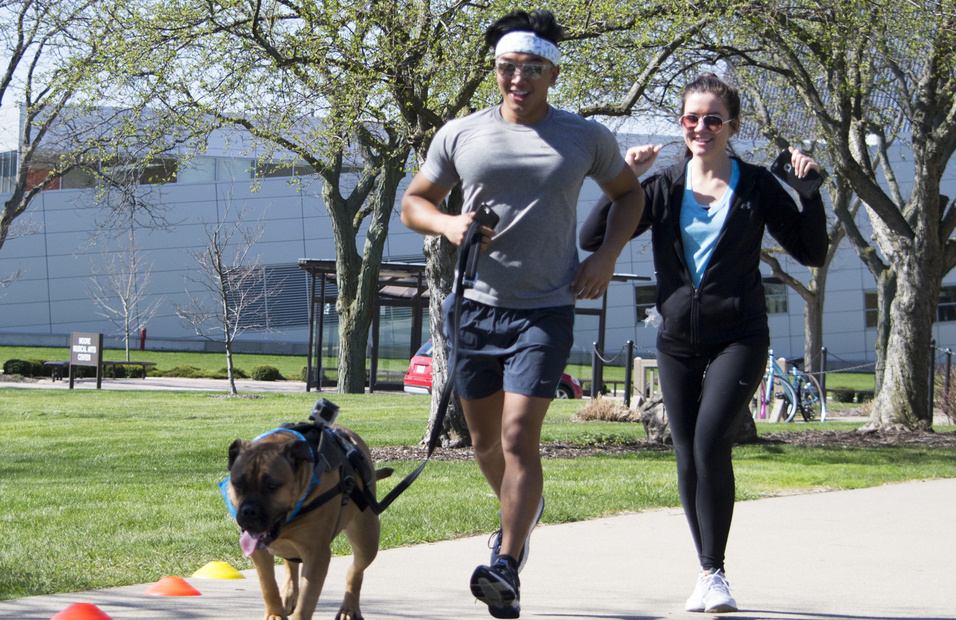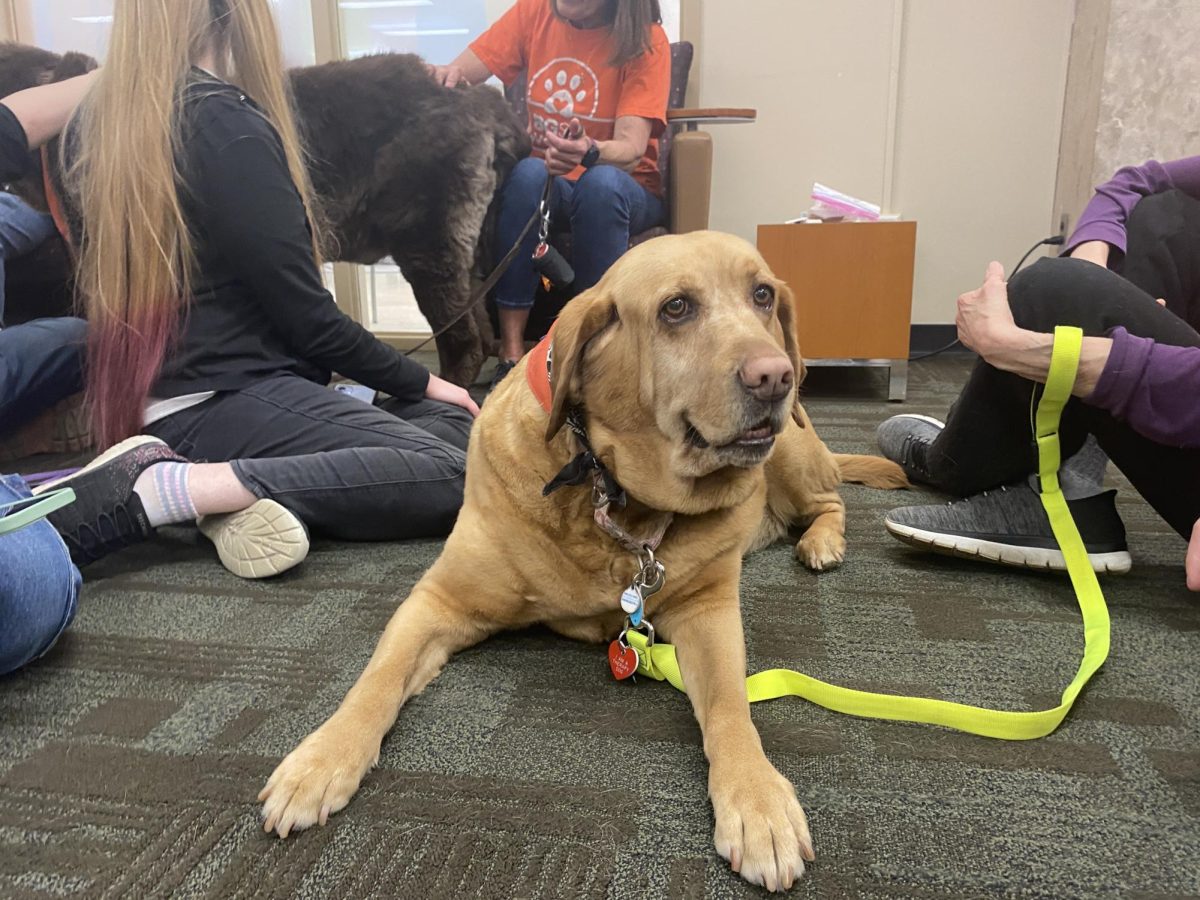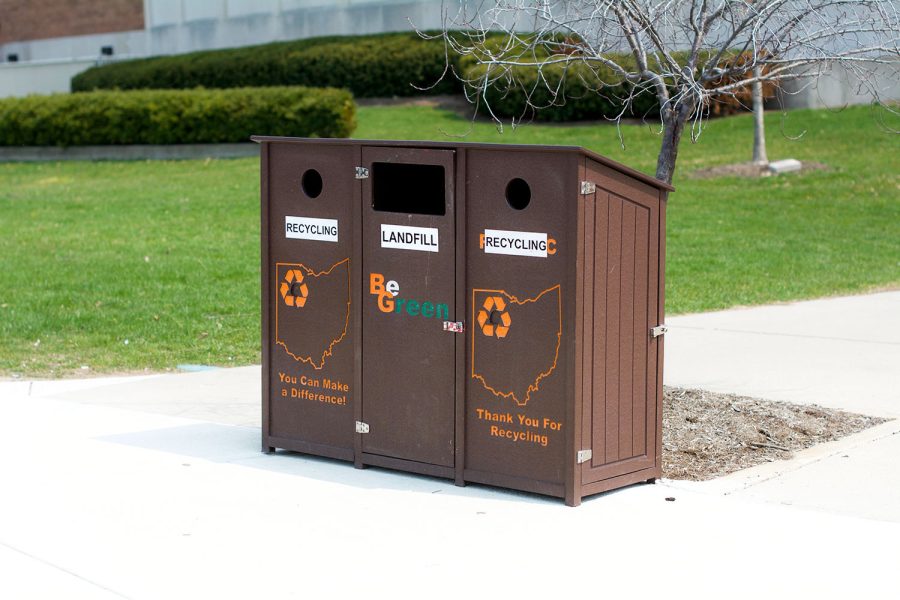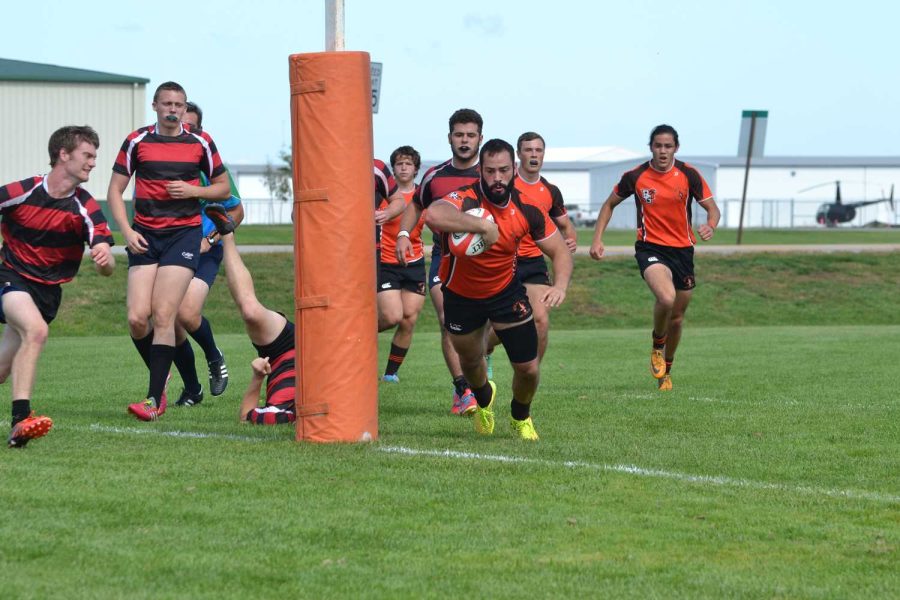As loneliness is becoming an epidemic among college students and experts nationwide are researching the growing problem, one campus group is fighting feelings of isolation through fostering strong community.
BGSU’s Daniel Maitland, director of the university’s clinical psychology program, is conducting a four-year research project under a $710,000 grant from the National Institutes of Health to understand the connection between loneliness and mental and physical health.
“My research focuses on how there is a reciprocal relationship between mental health, physical health and social intimacy. It’s kind of scary right now. [Current research shows that] loneliness predicts mortality at the same rate as smoking half a pack of cigarettes a day. Also, four out of five people between 18 and 25 are lonely right now. When you take those two things together, it paints a pretty grim picture for [Gen Z],” Maitland said.
In a 2020 survey, two-thirds of college students responded that they have felt lonely or isolated. Another study in 2018 found that 32% of college students felt moderately lonely. That same study recommended social support groups as useful tools to help students facing the stress of the college transition.
Maitland said that isolation is on the rise due to a number of factors, including post-pandemic effects, and that the first step for students suffering loneliness might look like getting involved in social spaces on campus.
“The first ingredient [to building close relationships] is connection: being in a space where you are meeting new people. There is a level of engagement where you just need to be around people to have an opportunity,” Maitland said.
One group helping combat the loneliness epidemic is the BGSU women’s club rugby team. Team captain Anna Doucette, a fourth-year human development major, said she found a home with the team her freshman year. Despite group activities being cut back during COVID-19 in 2020, Doucette said that making the move to meet the team was a life-changing decision.
“One of my friends from high school also came to BG and said, ‘Hey, come try out rugby.’ She said to come to this thing with the girls, and I was nervous as all get out. But we went and it was the best thing ever,” Doucette said.
The team’s vice president and third-year interior design major Katie Bish said that she was recruited with enthusiasm by the rugby team at Campus Fest after being rejected from another club sports table.
“The team dynamic is what made me stay. I’ve been on a lot of sports teams growing up, and I don’t think I’ve ever been on one where the vibes were just immaculate. I feel like the rugby team is so welcoming and warm and we have fun. I love the people who I play with,” Bish said.
However, it can be difficult for some students to take a leap of faith. Jenn Emahiser has seen this in her 27 years of experience in community and private practice mental health work.
Emahiser said that it can be common for college students to hesitate before stepping into unfamiliar social for fear of rejection.
“People think it’s easier to disconnect because it’s safer, or there’s a perception that it’s safer to isolate,” Emahiser said. “Whatever your anxiety is telling you, do the opposite. If it’s telling you to stay home, if it’s telling you not to try, start with one step at a time.”
The Center for Disease Control and Prevention says that social connectedness have better relationships, are more likely to make healthy lifestyle choices and will have better health outcomes overall.
So, what does the BGSU Women’s Rugby team do that works?
When it comes to maintaining a positive team dynamic, Doucette said that healthy role modeling starts with setting “ground rules.”
“There are still groups on the team, but at the end of the day, everyone is invited to be a part of those groups. We’ve built the team to be one big, giant family, ” Doucette said. “We, as a club, started annually coming together at the beginning of the season to set the boundaries and goals for the year. We are not going to tolerate certain behavior or certain talk. Not that it was an issue, but we recognize the importance of it.”
Freshman inclusive early childhood education major Jordyn Barr said that she felt accepted as a freshman on the team, both from her teammates’ support and the inclusive nature of rugby as a sport.
“It’s a good mix of the people and the sport. In rugby, there’s a position for every body type and every skill set, which is the really cool thing about the sport. Most teams are very welcoming and open because we all need players, and the girls are really sweet and kind and encouraging,” Barr said.
Doucette echoed a similar sentiment.
“Our biggest thing is anybody, ‘any body.’ That’s our phrase that we like to go by. Because at the end of the day, rugby as a sport is so unique that you can have any body. You can be any physical fitness or any identity. Just come play,” Doucette said.
Emahiser said that she advocates for social settings like that of the rugby team where young people can truly be themselves, and said that having a safe place to exist in varying states of well-being can be crucial to feeling accepted.
“[Strong social groups should be a place] where you feel safe to be yourself and be authentic, and other people get to be themselves where people validate each other, even if they have different opinions. There is authenticity, kindness and true communication,” Emahiser said. “And the understanding that there’s give-and-take. Sometimes, I can only give 80% and sometimes, I can give 30%. There should be a margin for how you are in the group.”
BGSU alumni Arika Kuron now serves as the assistant coach for the team, after playing on the team herself for five years. Kuron said that it’s important to foster the enthusiasm of the group to make people of all different backgrounds feel welcome.
“We are not afraid to be ourselves. That’s something that is so hard to find around, where people are genuinely themselves. I feel like with other organizations, you are worried about being professional, or having that GPA. Here, you can be anybody; we don’t care. We have a spot for you,” Kuron said.
Bish said that she treats rugby practice as a time and space dedicated to take a much needed break from her intense workload.
“You show up to practice and you feel like you can leave all your stress behind. And for two hours, you are just out there having fun. I think it helps that we do fitness, but that’s not the main part of our practices. We focus more on teaching rugby, because a lot of the girls that come in have not played rugby before. So, I think not dying for the entire two hours helps. We have fun with it,” Bish said.
The team advocates for mental health care and awareness, allowing accommodations for mental health days or other concerns. Maitland said creating a standard of radical support and acceptance can improve the playing experience.
“It’s this willingness to allow flaws without these flaws impacting performance. You still want to practice hard, you want to practice right, and hold each other up. It will look like prompting for another trial instead of punishing,” Maitland said.
Kuron said that the team prioritizes generous support both on and off the field to balance academic success with the enjoyment of the sport.
“A lot of them will support each other throughout the season [academically]. Sometimes [other groups] are like ‘Hey, let’s go party,’ where here [the team has] their shit together. That’s a good influence on yourself when you have people who are there for you outside of your sport. They also want to see you succeed in your career,” Kuron said.
Rugby team alumni also stay connected for years to come even after their time at BGSU ends. Doucette said that the team holds reunion events to welcome old members back to network, offer wisdom and relive the joy of the sport.
“[Alumni] came to play with us on the pitch. The oldest woman, who started the club, is 68 now, and she was out there tackling with us,” Doucette said, “I would say we are unique in that we have such strong connections.”
Kuron said that the impact of being on such a supportive and motivated team empowers the girls to know that they can do anything.
“They are like my children. You watch them give everything, not only for the sport but for each other, and you know that they are going to prosper in life because they have given their all,” Kuron said.
During her time as a college student, Doucette has advocated the importance of using the college environment to start building social connections.
“The biggest thing for me in college is that you get out of something what you put into it. In college as a whole, you just have so much more room to grow and so many more opportunities to reach goals that you may not have even had,” Doucette said.


